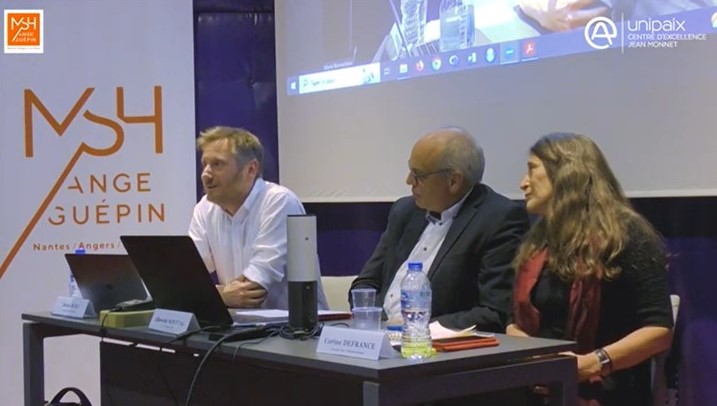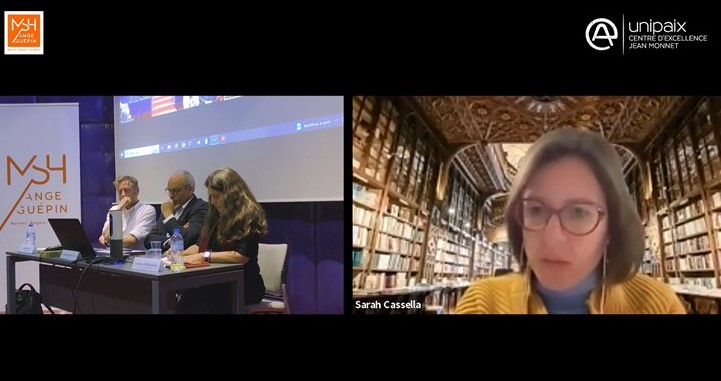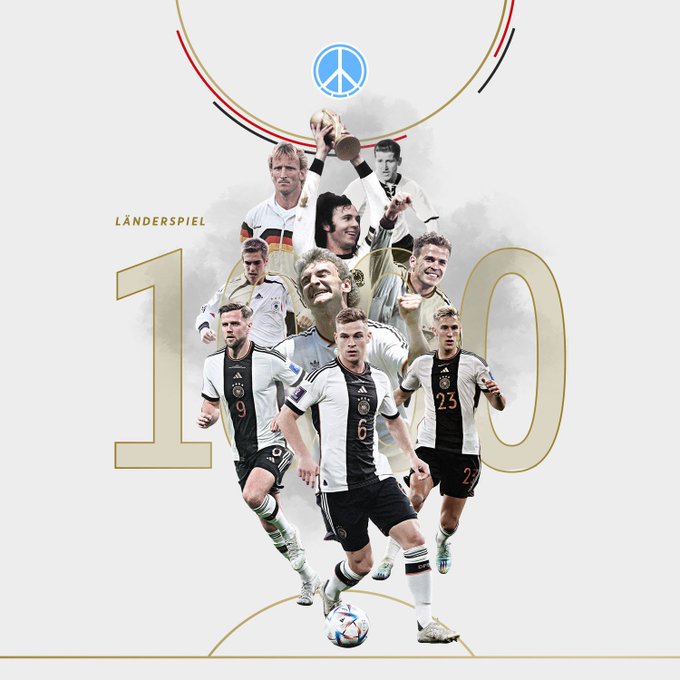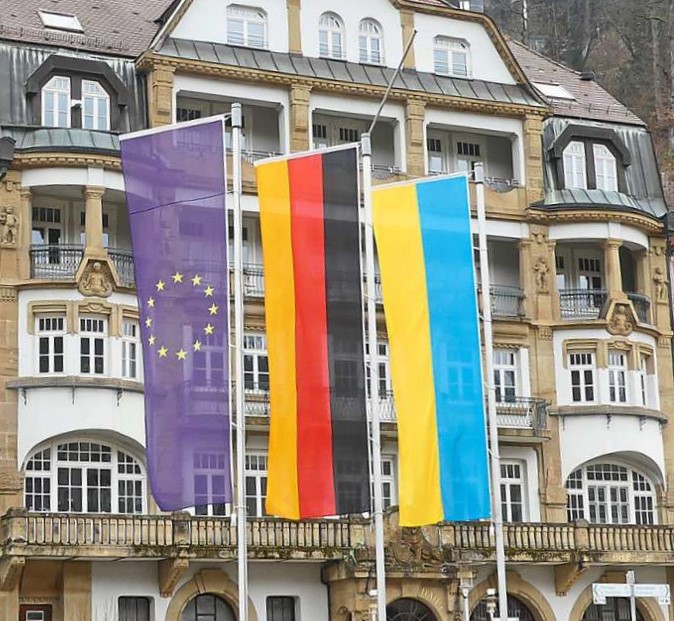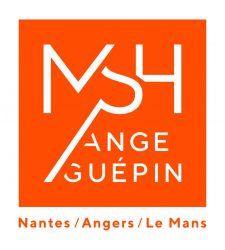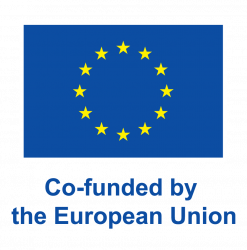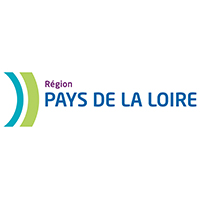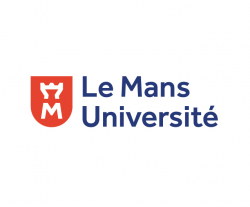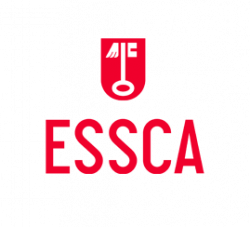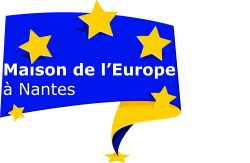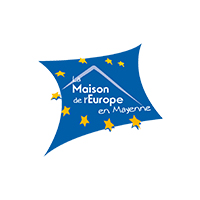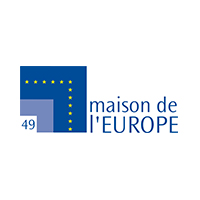From the very beginning, Corine Defrance wanted to recall that we certainly celebrated a lot the 60th anniversary of the Elysée Treaty, and with good reason, but it shouldn’t be forgotten that this January 22, we also celebrated the 4th anniversary of the Aix-La-Chapelle Treaty, this “Elysée 2.0” wished for by Emmanuel Macron and Angela Merkel.
In Aix, in 2019, the objective was not to replace the Elysée Treaty – you do not touch such a positive and symbolic memory place – but to update it, to adapt it to the XXIst century. This being said, if the Aix Treaty does include contemporary issues such as the digital and the fight against global warming, it finds itself, only four years later, already outdated by the new challenge of the Russian agression in Ukraine which put the peace question back at the forefront.
Can we learn from 1963 for a continent back at war in 2023 ?
According to Corine Defrance, it is always uselful to think about what worked in the past and what failed.What we must avoid, on the other hand, is to set the successful Franco-German experience up in a model for the others. The last decades showed that applying the franco-german methods to the world is probably not the right thing to do. As an example, the declaration during a Chirac-Schröder summit in Mayence in 2000, stating the “franco-german reconciliation as a model for the Balkans” scandalized. It is true that the situation is never the same between former belligerents, the context is specific, and the type of war determines the outcomes of the war, rapprochement and reconciliation.
This being said, third part countries sometimes take some inspiration from the “franco-german toolbox”, to adapt it to their context. We also saw some initiatives emerge, such as the creation of a youth office in Occidental Balkans, on the model of the OFAJ, one of the most emblematic outcomes of the Elysée Treaty, or the common revision of scholar books. It is undoubtly among tools for education to peace that the most concrete heritage of 1963 can be found.
To conclude, Corine Defrance looked back at the Aix-la Chapelle Treaty, pointing out that one of the greatest merits was the firm commitment to place cooperation and franco-german friendship in a European perspective, to make sure the accumulated experience is at the service of the European integration – an openness at odds with the 1963 philosophy.

